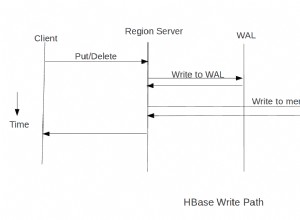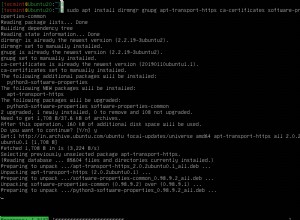Itu terlihat benar, tetapi Anda lupa tentang perilaku asinkron Javascript :). Saat Anda mengkodekan ini:
module.exports.getAllTasks = function(){
Task.find().lean().exec(function (err, docs) {
console.log(docs); // returns json
});
}
Anda dapat melihat respons json karena Anda menggunakan console.log instruksi DI DALAM panggilan balik (fungsi anonim yang Anda berikan ke .exec())Namun, saat Anda mengetik:
app.get('/get-all-tasks',function(req,res){
res.setHeader('Content-Type', 'application/json');
console.log(Task.getAllTasks()); //<-- You won't see any data returned
res.json({msg:"Hej, this is a test"}); // returns object
});
Console.log akan mengeksekusi getAllTasks() fungsi yang tidak mengembalikan apa pun (tidak terdefinisi) karena hal yang benar-benar mengembalikan data yang Anda inginkan adalah DI DALAM panggilan balik...
Jadi, untuk membuatnya berfungsi, Anda memerlukan sesuatu seperti ini:
module.exports.getAllTasks = function(callback){ // we will pass a function :)
Task.find().lean().exec(function (err, docs) {
console.log(docs); // returns json
callback(docs); // <-- call the function passed as parameter
});
}
Dan kita dapat menulis:
app.get('/get-all-tasks',function(req,res){
res.setHeader('Content-Type', 'application/json');
Task.getAllTasks(function(docs) {console.log(docs)}); // now this will execute, and when the Task.find().lean().exec(function (err, docs){...} ends it will call the console.log instruction
res.json({msg:"Hej, this is a test"}); // this will be executed BEFORE getAllTasks() ends ;P (because getAllTasks() is asynchronous and will take time to complete)
});




